Search
Search Results
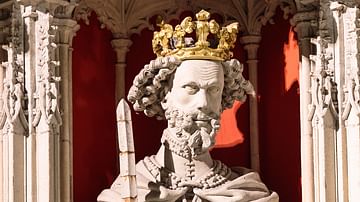
Definition
King Stephen of England
King Stephen of England, often called Stephen of Blois, ruled from 1135 to 1154 CE. His predecessor Henry I of England (r. 1100-1135 CE) had left no male heir and his nominated successor, his daughter Empress Matilda, was not to the liking...
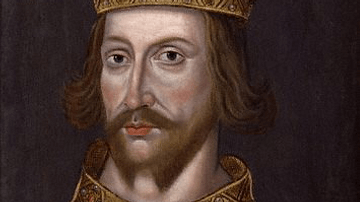
Definition
Henry II of England
Henry II of England ruled from 1154 to 1189 CE. He gained the throne by negotiation with his predecessor King Stephen of England (r. 1135-1154 CE) following the civil war that had raged between that monarch and Henry's mother Empress Matilda...
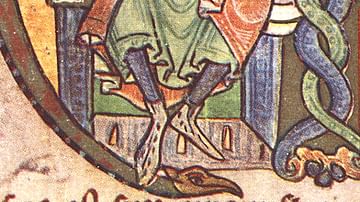
Definition
David I of Scotland
David I of Scotland reigned from 1124 to 1153 CE. Taking over from his elder brother Alexander I of Scotland (r. 1107-1124 CE), David continued to consolidate the kingdom of Scotland as a single nation, built castles and monasteries, and...
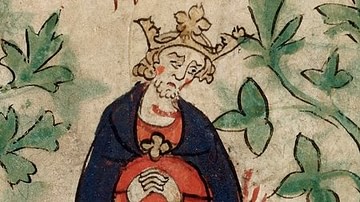
Definition
Henry I of England
Henry I reigned as the king of England from 1100 to 1135 CE. The son of William the Conqueror (r. 1066-1087 CE), Henry succeeded his brother William II of England (r. 1087-1100 CE) after he had died in a hunting accident and left no heir...
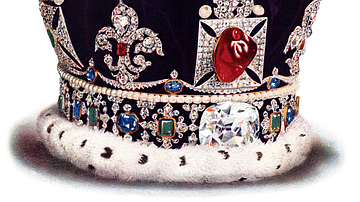
Definition
British Crown Jewels
The Crown Jewels of the monarchy of the United Kingdom of Great Britain and Northern Ireland are today kept in the Tower of London and date mostly to the 17th century, with a few later sparkling additions such as the Koh-i-Noor and Cullinan...
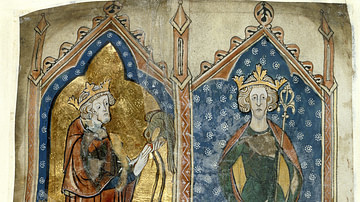
Image
Stephen of England & Henry II of England
A manuscript depicting King Stephen of England (r. 1135 - 1154 CE) on the left, and King Henry II of England (r. 1154 - 1189 CE) on the right. Stephen is depicted standing and holding a falcon, Henry II is seated upon his throne. From...
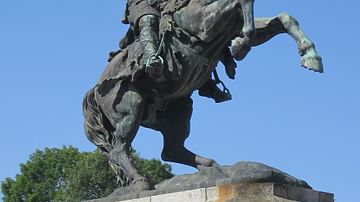
Definition
William the Conqueror
William the Conqueror (c. 1027-1087), also known as William, Duke of Normandy, led the Norman Conquest of England in 1066 when he defeated and killed his rival Harold Godwinson at the Battle of Hastings. Crowned King William I of England...
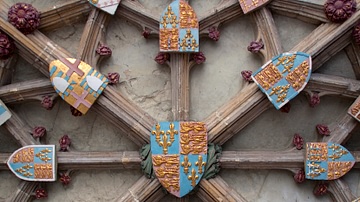
Collection
The Plantagenets
The Plantagenets, sometimes referred to as the Angevin-Plantagenets, were the ruling dynasty of England from 1154 to 1485 CE. The name Angevin derives from the family's ancestral lands in Anjou, France and the term Plantagenet (perhaps) from...
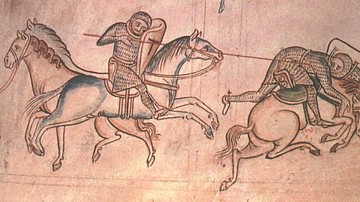
Definition
Sir William Marshal
The Englishman Sir William Marshal (c. 1146-1219 CE, aka William the Marshal), Earl of Pembroke, is one of the most celebrated knights of the Middle Ages. Renowned for his fighting skills, he remained undefeated in tournaments, spared the...
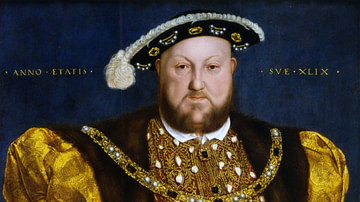
Definition
Henry VIII of England
Henry VIII of England ruled as king from 1509 to 1547 CE. The second Tudor king after his father Henry VII of England (r. 1485-1509 CE), Henry had inherited a kingdom which enjoyed both unity and sound finances. Famous for his six wives as...